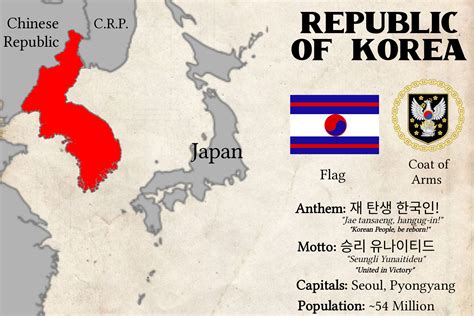Explore the history of Ghana from early settlements to modern developments. Learn about the impact of colonization and the independence movement.
Early Settlements and Colonization
Contents
Early Settlements: The history of Gambia dates back to early settlements by various ethnic groups, including the Mandinka, Wolof, and Fula peoples. These groups established small villages and communities along the banks of the Gambia River, engaging in trade and agriculture.
Colonization: The arrival of European powers, including the Portuguese and British, led to the colonization of Gambia. The Portuguese were the first to establish trading posts along the coast in the 15th century, followed by the British who established control over the region in the 17th century.
Impact on Indigenous Peoples: The colonization of Gambia had a profound impact on the indigenous peoples of the region. The European powers imposed their economic, political, and social systems on the local populations, leading to the exploitation and marginalization of the Gambian people.
Conflict and Resistance: The process of colonization also led to conflicts between the European powers and the indigenous peoples of Gambia, as different groups vied for control of the region. This resistance took various forms, including armed uprisings and diplomatic negotiations.
Impact of the Transatlantic Slave Trade
The Transatlantic Slave Trade had a profound and lasting impact on the history and development of Gambia. The trade, which lasted for over three centuries, involved the forced transportation of millions of African men, women, and children to the Americas to work on plantations and in other forms of forced labor. This mass displacement of people and the resulting loss of population had a significant impact on the social, economic, and cultural fabric of the region.
The labor demands of the Transatlantic Slave Trade led to the widespread disruption of African societies as people were captured and transported to the coast for sale to European and American slave traders. Communities were torn apart, and traditional social structures were weakened as a result. The loss of skilled workers and leaders also had devastating effects on the ability of African societies to thrive and develop.
In addition to the immediate impact on African societies, the Transatlantic Slave Trade had long-term consequences for the development of Gambia and the African continent as a whole. The trade perpetuated underdevelopment and poverty in the region, as the wealth generated from the labor of enslaved people flowed to European colonizers rather than remaining in African hands. The legacy of this exploitation continues to be felt in the economic disparities that persist in the region today.
The cultural impact of the Transatlantic Slave Trade is also profound, with the forced migration of Africans resulting in the spread of African cultural practices and traditions across the Americas. The contributions of African peoples to the development of music, art, religion, and other cultural forms in the Americas are undeniable, and they continue to influence the fabric of societies in the region today.
British Colonial Rule
British colonial rule in Gambia began in the 17th century with the establishment of a trading post by the Royal African Company. This initial presence eventually led to the formal colonization of the region by the British Empire. The primary objectives of British colonial rule in Gambia were to exploit the region’s natural resources, establish a network of trade routes, and assert political control over the indigenous population.
Under colonial rule, the British implemented a system of indirect rule, which involved governing through local tribal leaders. This method allowed for minimal British presence in day-to-day affairs, while still maintaining influence and control over the region. The colonial administration also introduced British legal and educational systems, which contributed to the spread of Western influence in Gambia.
One of the most significant aspects of British colonial rule in Gambia was the impact it had on the local economy. The British encouraged the production of cash crops such as peanuts, which were then exported to other parts of the empire. This focus on monoculture agriculture had lasting effects on the country’s economy, as it led to a heavy reliance on a single export commodity.
Additionally, the British colonial authorities played a major role in shaping the social and cultural landscape of Gambia. They introduced Christianity to the region, which significantly impacted the spiritual beliefs of the indigenous population. The colonial period also saw the imposition of Western norms and values, which influenced social structures and practices.
Independence Movement and Nationhood
Independence Movement and Nationhood The Gambia gained independence from British colonial rule on February 18, 1965, marking a significant milestone in its history. The movement for independence was led by political leaders such as Sir Dawda Jawara, who later became the country’s first Prime Minister and then President. The struggle for independence was not without challenges, as the colonial authorities were reluctant to relinquish control. However, through persistence and determination, the Gambian people were able to secure their sovereignty.
In the early years of nationhood, The Gambia faced the task of building a cohesive and independent state. This involved the establishment of government institutions, development of infrastructure, and the formulation of policies to address the needs of the population. As a young nation, The Gambia also had to navigate its place on the global stage, forging diplomatic relations with other countries and international organizations.
The nationhood of The Gambia was further solidified through its participation in regional and international affairs. The country became a member of the United Nations and the African Union, contributing to peacekeeping efforts and engaging in discussions on global issues. The Gambia’s sovereignty and independence were upheld, and its national identity continued to evolve.
Over the years, The Gambia has experienced political and social developments that have shaped its trajectory as a nation. The transition from colonial rule to independence marked the beginning of a new chapter in the country’s history, paving the way for self-governance and national empowerment. The Independence Movement and the subsequent establishment of nationhood laid the foundation for The Gambia’s continued growth and development as a sovereign state.
Modern Political and Social Developments
The modern political and social developments in Gambia have been shaped by a variety of factors, including the country’s transition to multiparty democracy, economic reforms, and efforts to promote human rights and gender equality. Since gaining independence in 1965, Gambia has seen several changes in its political landscape. From the authoritarian rule of President Yahya Jammeh to the election of Adama Barrow in 2016, the country has experienced a shift towards a more inclusive and democratic government.
Additionally, there have been significant efforts to address social issues such as poverty, education, and healthcare. The government has implemented programs aimed at improving access to education and healthcare services, particularly in rural areas. Initiatives to reduce poverty and inequality have also been prioritized, with a focus on creating economic opportunities for all citizens.
Furthermore, the role of civil society and non-governmental organizations (NGOs) has become increasingly important in shaping the country’s social development. These organizations have been instrumental in advocating for human rights, promoting gender equality, and addressing environmental concerns. Their participation has contributed to a more open and inclusive society, where marginalized groups have a voice in decision-making processes.
In recent years, Gambia has also made significant strides in addressing historical human rights abuses and promoting reconciliation. The Truth, Reconciliation and Reparations Commission (TRRC) was established to investigate past atrocities and provide a platform for victims to share their experiences. This has been a crucial step in healing the wounds of the past and fostering a more unified and peaceful society.














